
9 February 2016
Lee M
[FYI request #3527 email] Dear Lee M
Official Information Act Requests
Thank you for your Official Information Act 1982 (OIA) request of 6 January 2016, entitled
“Changes to ACC45 claim forms”. ACC’s response to your questions is set out below.
Questions 1-3
You referred to a previous OIA response uploaded to the
www.fyi.org.nz website by ACC
(https://www.fyi.org.nz/request/1713/response/6307/attach/3/OIA%20David%20Nicholas%20
Reply.pdf) and asked:
1. What is the purpose of ACC claimants being required to sign ACC45 forms? Please
provide the fullest possible explanation.
2. Why must a treatment provider only lodge an ACC45 form with the ACC after the
claimant has authorised the claim being lodged
3. Are ACC claims authorised by claimants signing the manual and/or electronic ACC45
forms, and is there any difference in the wording of the declaration used on the manual
ACC45 forms compared to that used on the electronic ACC45 forms? If so, can you
please provide scanned copies of both declarations (manual and electronic).
The requirement in regard to claim lodgement is that ACC clients or their authorised
representatives must either:
physically sign an ACC45 paper form, or
provide a digital signature, through the lodging treatment provider, on an electronic
ACC45.
The requirement for providers to obtain authorisation before lodging a claim on a person’s
behalf is set out in section 49 of the Accident Compensation Act 2001.
The legislation requires authorisation by clients before lodgement. The information required
on the electronic form is the same as the paper version but may be laid out slightly
differently. Attached is a document that contains the declaration wording from ACC45s.
Question 4
4. Can you please provide copies of all internal and external policies, procedures,
guidelines, rules, communications (including Memo's, letters, e-mails and faxes),
meeting Agenda and Minutes, and any other written words created pursuant to 28 May
2014 and stored in hardcopy or electronically which relate to the subject of any and all
ACC forms that require claimant authority to access and share personal health
information. This is to include all draft and final changes considered, proposed,
recommended and/or made to any and all ACC forms that require claimant authority to
access and share personal health information.
Your question is extremely broad and appears to incorporate a substantial amount of
information that ACC holds.
In terms of “any and all ACC forms that require claimant authority to access and share
personal health information”, this includes approximately 15 forms and over 300 template
letters.
Fol owing the District Court decisions
Powell v ACC [2014] NZACC 89 and
K v ACC [2014]
NZACC 90 in March 2014, ACC launched a comprehensive review of its authority process
and forms. This included a project to replace the ACC167
Authority for the collection and
disclosure of information form with the ACC6300
Authority to collect medical and other
records form, as well as reviewing and considering any related changes to all other forms
and template letters.
The creation of the new form and review of the wording relating to authority required
consultation with external parties including advocates, providers and vendors. Any
information related to your request that mentions these parties will require consultation with
them before it can be released to you.
ACC also has an ongoing project to update and review its entire Forms, Letters and Fact
Sheets stock, which includes any related documents that refer to client access to personal
information. Final y, there are numerous policies, procedures and guidelines that include how
to use all these forms, which could potentially come into the scope of your request.
ACC’s interim response
Due to the range of information that your question encompasses, ACC has prepared and
attached some high level documents that relate to your query, including:
ACC Memo for April Board
ACC Board paper ‘Authority to collect information’ May 2014
Advocates Representation Group meeting file.
Redactions have been made to these documents to: withhold staff names under Chief Officer
level (in accordance with section 9(2)(a) of the OIA); to maintain legal professional privilege
(in accordance with section 9(2)(h) of the OIA); and to protect the confidentiality of advice
tendered by officials (in accordance with section 9(2)(f)(iv) of the OIA). The reason for
redaction wil be noted against each redacted paragraph.
Please note that the document provided to answer questions 1-3 regarding the ACC45
declaration wording, also provides information to answer question 4. Also note that
documents relevant to this request may be found in ACC’s response to one of your previous
FYI requests, found at this address
https://www.fyi.org.nz/request/3499-acc-principles-in-
how-a-client-s-authority-is-used#incoming-11156.
Refining the scope
As discussed above, there are a significantly large number of documents to work through.
We respectfully ask you to refine the scope of your original question 4 request. This could
include narrowing it to one particular authority form, and/or reducing the type of documents
you are seeking (e.g. final versions, policies, guidelines, etc).
Please let us know by return email t
o [email address] by
22 February 2016 whether you wish to refine the scope of your original question 4 and how you wish to refine it.
ACC considers that it wil take approximately four months to search for relevant material,
abstract, collate, copy, transcribe and supervise access to all the documents that potentially
fall in to the scope of your question 4 request. Should you wish to retain your original
wording, ACC will require an extension under section 15A(1) of the OIA to respond to it. This
means that the information should be provided to you by
10 June 2016.
ACC is happy to answer your questions
If you have any questions about the information provided, ACC will be happy to work with
you to answer these. You can contact us at
[email address] or in writing to
Government Services, PO Box 242, Wel ington 6140.
You have the right to complain to the Office of the Ombudsman about our decision to refuse
or consider charging for your request. You can call them on 0800 802 602 between 9am and
5pm on weekdays, or write to The Office of the Ombudsman, PO Box 10152, Wellington
6143.
Yours sincerely
Government Services
Government Services
Enc. ACC45 Declaration wording for OIA request
ACC Memo for April Board
ACC Board paper ‘Authority to collect information’ May 2014
Advocates Representation Group meeting file

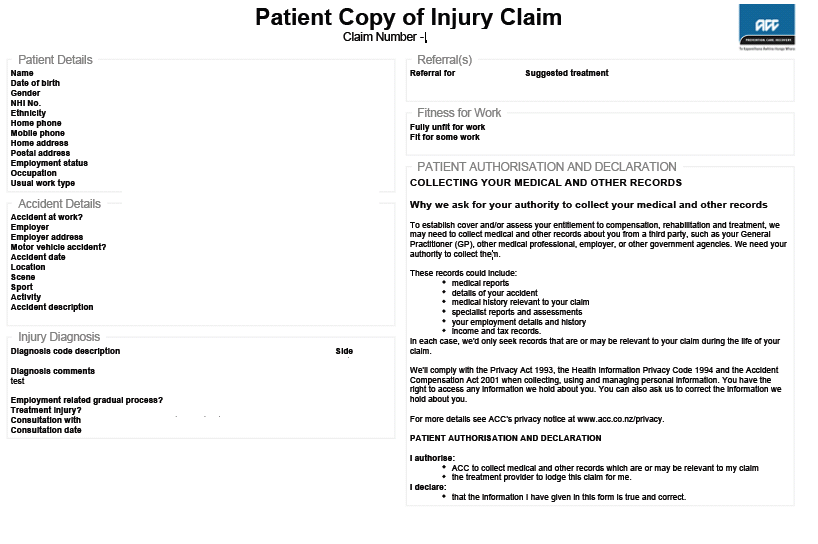 ACC45 Patient Authorisation & Declaration Wording
ACC45 Patient Authorisation & Declaration Wording
Online ACC45 (eACC45)
Provider Declaration Onscreen
DEMONSTRATION
Patient Authorisation & Declaration - As Part of Printed Claim
ONLY:
NOT
FOR
OFFICIAL
USE
Unclassified
Page 1 of 4
Created on 18/01/2016 2:31 p.m.
I:\PUBLIC\Hutt Processing Centre\eServices Managed Documents\Projects\eACC45\Issues Register and FAQs\ACC45 Declaration
Wording For OIA Request - 2016-01-18.docx
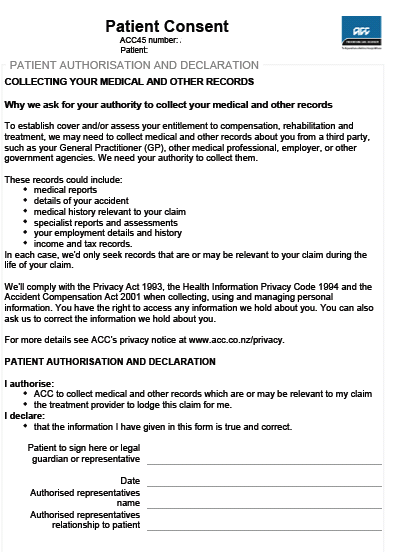
DEMONSTRATION
ONLY:
NOT
FOR
OFFICIAL
USE
Unclassified
Page 2 of 4
Created on 18/01/2016 2:31 p.m.
I:\PUBLIC\Hutt Processing Centre\eServices Managed Documents\Projects\eACC45\Issues Register and FAQs\ACC45 Declaration
Wording For OIA Request - 2016-01-18.docx

 Paper ACC45
Paper ACC45
Patient Declaration – on front of form
DEMONSTRATION
Provider Declaration – on front of form
ONLY:
NOT
FOR
OFFICIAL
USE
Unclassified
Page 3 of 4
Created on 18/01/2016 2:31 p.m.
I:\PUBLIC\Hutt Processing Centre\eServices Managed Documents\Projects\eACC45\Issues Register and FAQs\ACC45 Declaration
Wording For OIA Request - 2016-01-18.docx
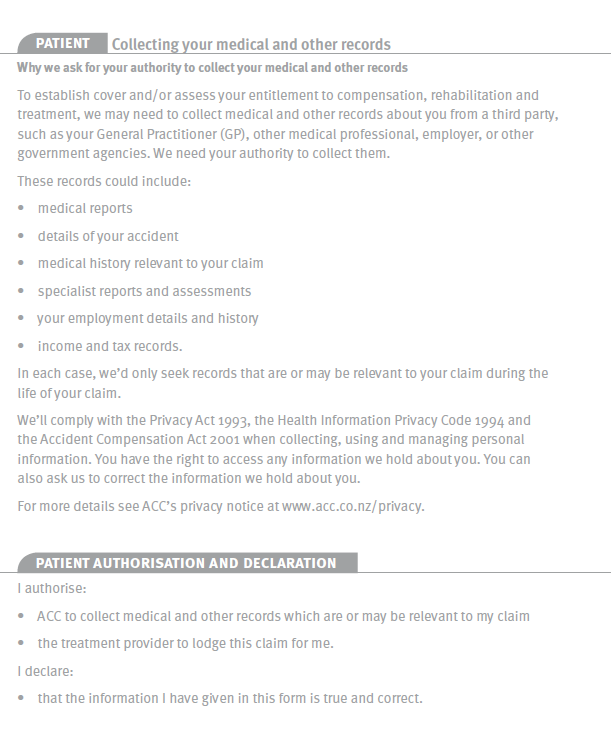
Patient Authorisation & Declaration – On back of form
DEMONSTRATION
ONLY:
NOT
FOR
OFFICIAL
USE
Unclassified
Page 4 of 4
Created on 18/01/2016 2:31 p.m.
I:\PUBLIC\Hutt Processing Centre\eServices Managed Documents\Projects\eACC45\Issues Register and FAQs\ACC45 Declaration
Wording For OIA Request - 2016-01-18.docx
 Memorandum
Memorandum
TO
s9(2)(a)
Chief Privacy Officer and Change Director
CC
s9(2)(a)
Strategic Manager, Privacy
FROM
s9(2)(a)
Principal Advisor, Privacy
DATE
30 April 2014
SUBJECT
ACC167 form in the Independent Review
The ACC167 as referenced in the Independent Review
Recommendations summary
There is no specific mention of the ACC167 in the 44 main recommendations.
There are, however, supplementary recommendations (‘IPP/HIPR Compliance Recommendations’)
around IPP/HIPR 2 and IPP/HIPR 3 that relate to consent.
IPP/HIPR 2 ACC should review its processes and forms for seeking consent to col ect and disclose information to
ensure that they are consistent with best legal and privacy practices and take account of ACC’s
clients interests.
ACC should establish processes to allow for detailed ongoing stakeholder consultation on the
development and implementation of consent processes.
Subject to the above, ACC should make its forms and consent processes:
As specific as possible to a claimant’s circumstances.
Address the need to renew consent from time to time.
Consider the circumstances in which consent may be withdrawn (for future disclosures) and
the consequences.
Not cover collection or disclosure of personal information where ACC does not need consent
and instead provide information about such collection or disclosure in appropriate language,
formats and locations
(See also Recommendation 3 and 6).
IPP/HIPR 3 ACC should review the way in which it provides privacy information to its clients as required by
IPP/HIPR 3 and best practice, to ensure it is consistent across forms and channels, is
comprehensive and takes account of client’s different information needs at different points in their
claims process. Unless it can meet best practice other ways ACC should adopt a layered notice
approach and should develop a detailed privacy policy on al aspects of its privacy commitment, its
handling of personal information and its privacy complaint handling processes and make sure this is
generally available to clients and members of the community.
(See also Recommendation 3 and 6)
Accident Compensation Corporation
Page 1 of 3
The main discussion on the ACC167 was contained in chapter 8.8 which talked about ACC’s approach
and performance through the lens of the IPPs and HIPRs.
The supplementary recommendations in 8.8 were intended to assist in implementing the main
recommendations but also raise issues not considered elsewhere in the Independent Review.
The main compliance risks highlighted by the Independent Review team were in relation to security
(IPP5/HIPR 5) and disclosure (IPP11/HIPR11). However they did note that:
[...] there is also room for significant change at the critical point of entry of personal information to ACC
systems. ACC’s practices in relation to the collection of personal information could be improved both in
terms of communications with clients and in ensuring it only col ects, or receives information that is relevant
and necessary for its functions and activities.
Discussion IPP 2/HIPR 2:
The Review team mentioned that the challenge from a privacy perspective is that the consent forms
(ACC167 and ACC45) are broad – which make it more difficult for individuals to understand what will
happen to their personal information and therefore to make informed choices. In particular, the team
noted client stakeholder concern at this.
There were issues with:
o the breadth of the consent form, making it difficult to know with certainty who ACC might contact for
information or to whom it might be provided
o the general description of the nature of personal information col ected or disclosed does not provide
clients with a clear picture of what sort of information wil be collected.
o ACC’s policy on the life of consent – essentially the life of the claim – and whether this is fair, and
understood by ACC staff and clients
o the process, if any, to withdraw consent
o inconsistency in staff reports of the consent process
o whether it should include collection of information for research and statistics.
The Review team noted that while the consent forms may be considered to comply there was an
opportunity for a better practice review.
Discussion IPP 3/HIPR 3
The Review team did not identify significant compliance issues in respect to IPP 3/HIPR 3 but suggested
there were “some minor gaps” in meeting its requirements, for example:
o the ACC167 does not specifically identify information as being voluntary or mandatory or set out the
consequences of not providing the information.
o the ACC167 description of usual disclosures is very broad; it would be difficult for claimants to get a
realistic picture of what disclosures wil happen in their particular case.
o the form does not mention usual disclosures for data-matching, health system payments, other
government interests or disclosures in the context of review of appeals.
Stakeholder input
The other major area of discussion on the ACC167 was from external stakeholder interviews.
The ACC167 is mentioned as a key area of concern, in particular:
o the use of ‘etc’ with reference to obtaining and using health information (NB. this has been removed
from the form currently in use)
o various attempts had been made to discuss the form with ACC but stakeholders felt they had not
been listened to
o that ACC was collecting more medical information than was needed to assess the specific claim and
that such information had been used as grounds for denying compensation.
Accident Compensation Corporation
Page 2 of 3
Action we took to address the Independent Review recommendations
Recommendation 3.8 states that ACC should:
3.8 Complete a holistic review of the personal information [notices] provided to clients via all channels
and at al stages in their interactions with ACC to ensure that:
it is consistent
provides sufficient detail to inform their decisions and actions
takes account of current best practice in privacy notices, for example using layered notices and
giving “just-in-time” privacy prompts.
In November 2013, recommendation 3.8 of the Independent Review was closed off. The
recommendation was closed because ACC had:
o completed a detailed analysis of interactions with clients and the privacy notices available to clients,
which identified a number of improvement opportunities and gaps.
o found that ACC’s current privacy policy and notice was inadequate and inconsistent with best practice
as recommended by the IAPP, OPC and Global Privacy Enforcement Network Internet Privacy Sweep
of May 2013
o uploaded a new layered privacy notice on ACC’s website (and internally on our intranet), that follows
the layering concept; Layer 1 makes high level statements about ACC’s data protection process.
Layer 2 provides further detail, linking from key words in Layer 1
o presented the privacy policy and notice to members of the Advocates Representation Group in
October 2013, who provided positive feedback on the layout and content
o completed more specific policies based on the IPPs, to provide further guidance to staff on our privacy
requirements. (Note these awaiting uploading to our intranet.)
In particular, the closure recommendation noted that:
[…] work will begin in early 2014 to ensure that the ACC45 claim lodgement form and the ACC167 consent
form, in combination with the privacy notice and policy, provide satisfactory detail to customers and clients
about ACC’s information practices, particularly during their first encounter with ACC. Given the significance
of these changes, it is likely that these wil be delivered as part of the Privacy Pil ar within the Shaping our
Future Programme.
Action we had in train to revise the form
As stated in the recommendation 3.8 closure document, work on the consent process was a priority and
was underway. However, it was considered that it was fundamental to set ACC’s privacy notice and
policy in place first to use as a basis for our information management.
Work already complete included:
o a workshop run by Information Integrity Solutions on 20 March that explored the consent process,
specifically the ACC45 and ACC167
o a 3 April idea definition on the consent process with the objective to implement some quick win
improvements to ACC’s current forms and communications regarding the collection, storage and use
of information, producing:
a new notice informing clients of how and why ACC collects, stores and uses their information to
manage their claim. This would be included as an insert with the cover letter for the individual’s
claim.
an updated version of the ACC167 form that aligns to current corporate style guides and clearly
delineates between notice and consent.
Accident Compensation Corporation
Page 3 of 3
Board Paper
Title
ACC’s authority to collect information
Status
Decision
Information
Consideration
Agenda Item
3.3
1
Purpose
1.1
This paper outlines:
•
Judge Powell’s findings on the use of the ACC167
Authority for the Collection
and Disclosure of Information form
•
actions underway to revisit ACC’s processes to gain client authority to collect
their personal information
•
ACC’s process for providing information to employers for pre-employment
checks.
2
Alignment to Strategic Direction
2.1
One of ACC’s strategic drivers is to ensure the protection of personal information
held by ACC, and an outcome measure of this strategic driver is to improve our
privacy maturity. This paper updates the Board on ACC’s work to review and
improve our maturity in the way we collect information and gain client authority to do
this.
3
Recommendations
3.1
It is recommended that the ACC Board:
(a)
Note that ACC has work underway to review its processes for gaining client
authority to collect personal information, and key results of this work include:
i.
replacing the ACC167
Authority for the Collection and Disclosure of
Information form
ii.
amending the ACC45
Injury Claim Form and other associated forms
(b)
Note that ACC has processes in place to manage requests from prospective
employers for client information.
4
Background
4.1
At present, authority for ACC to collect a client’s personal information is primarily
obtained through the ACC45 and ACC167:
•
ACC45 – filled out at the initial consultation with the client's treatment provider,
and is the mechanism by which a client makes a claim to ACC for cover and
entitlements
•
ACC167 – given to claimants at a later stage, initiated by ACC, for the purpose
of collecting and disclosing information to assess the claimant's ongoing right
to entitlements.
4.2
In addition, there are approximately 15 other different forms which clients sign at
different times to provide consent for ACC to collect information.
Authority and consent in the Independent Review
4.3
As part of addressing the recommendations of the Independent Review of ACC’s
Privacy and Security (
Independent Review) ACC completed a holistic review of
notices provided to clients to ensure they were consistent and sufficiently detailed.
Privacy notices communicate an organisation’s privacy policies to customers and are
commonly found on a business’ website.
4.4
This review led to the development of a new privacy notice designed to follow
international best practice, which is now available on ACC’s website in eight
languages. The notice and accompanying privacy policy were presented to
members of the Advocates Representation Group (
ARG) in October 2013, who
provided positive feedback on the layout and content. In addition, more specific
policies based on the Information Privacy Principles (
IPPs) were completed to
provide further guidance to staff on privacy.
4.5
The Independent Review also made supplementary recommendations around IPPs
2 and 3 that relate to client consent.
1 In particular the Independent Review noted
that ACC’s practices could be improved in terms of client communication and in
ensuring ACC only collects, or receives information that is relevant and necessary
for its functions and activities.
1 Supplementary recommendations were intended to assist in implementing the main recommendations but also
raise issues not considered elsewhere in the Independent Review.
4.6
Taking account of the supplementary recommendations, and using the privacy notice
and policy as a base, work began in early 2014 to ensure that clients were provided
with satisfactory detail about ACC’s personal information processes when providing
consent to ACC, including when completing the ACC45 and ACC167 forms.
Judge Powell’s decisions
4.7
In March 2014, Judge Powell considered two cases against the Corporation that
were brought by ACC clients who had had their entitlements ceased when they
refused to sign the ACC167.
2 The key issue was whether a failure to complete the
ACC167 by itself constituted a failure to comply with the requirements of the
Accident Compensation Act 2001 (the Act).
4.8
Judge Powell found that failure to complete the ACC167 could not be seen as an
unreasonable refusal to comply with the requirements of the Act. He concluded that
the authorisation requested in the ACC167 to collect "information", was broader than
that mandated by section 72(1)(c) of the Act, namely authorisation for the collection
of "medical and other records that are or may be relevant to the claim".
4.9
Judge Powell noted that there were a number of options available to ACC, including:
(a)
ensuring any authority is consistent with section 72(1)(c) of the Act
(b)
if a wider authority is sought, ensuring that authority is specific in regard to
client’s legislative obligations and what can be enforced under legislation by
ACC if authority is not provided
(c)
enabling specific agreements on consent between individual clients and ACC.
5
Review of ACC’s processes to gain client authority
5.1
As discussed above, work was underway to review whether clients were able to make
informed decisions when providing authority for ACC to collect and use their personal
information. Following Judge Powell’s decisions, this work was accelerated.
5.2
This is a programme of work that impacts on most elements of the claims management
process. Implementation will require systematic and structured changes to how ACC
gains authority to collect personal information from clients. These changes will also
impact on the operational processes that rely on this information. Given the scale, a
project has been established to ensure effective delivery.
2 The judgments relate to decisions made by ACC in 2009 and do not reflect current practice.
5.3
In the interim, staff have been advised to continue using the ACC167 until the new
processes and forms are finalised. However, there were clear instructions to not
suspend entitlements where a client failed to complete the ACC167.
Client awareness of the ACC’s processes
5.4
A key issue with gaining authority is the client’s awareness of ACC’s processes.
Some stakeholders complain that they give consent to do a broad range of things,
but that ACC is not transparent in how information is collected, what ACC requests
from third parties, or how the information is used.
5.5
ACC’s processes that are perceived as being hidden therefore need to become more
transparent and more customer-centric. For example, if more information is needed
on a claim after a period of non-activity of at least three months, staff should check
that the client is still comfortable with the authority form held on file.
5.6
To address this issue, ACC has established principles for gaining client authority, as
represented in the diagram in
Appendix 1. The principles represent the continuous
cycle of gaining client authority, requesting, receiving and using records, and
communicating with the client throughout the whole process.
Over-collection of information
5.7
One issue under review is to determine best practice for ACC staff who receive
information that is not relevant to the particular claim. Efforts have been made in
recent years to ensure that requests to providers are extremely clear in what is
required to make a decision. However, it is still necessary to address:
•
what to do with irrelevant information relating to a claimant but not directly
related to the injury that is received unsolicited by ACC
•
information that does not specifically relate to an injury but could impact on the
client’s successful rehabilitation
•
provider workloads to enable the editing of information before it is sent to ACC,
or alternatively coping with many different requests about clients as more
information is required.
3
3 ACC will work through representative associations to achieve this.
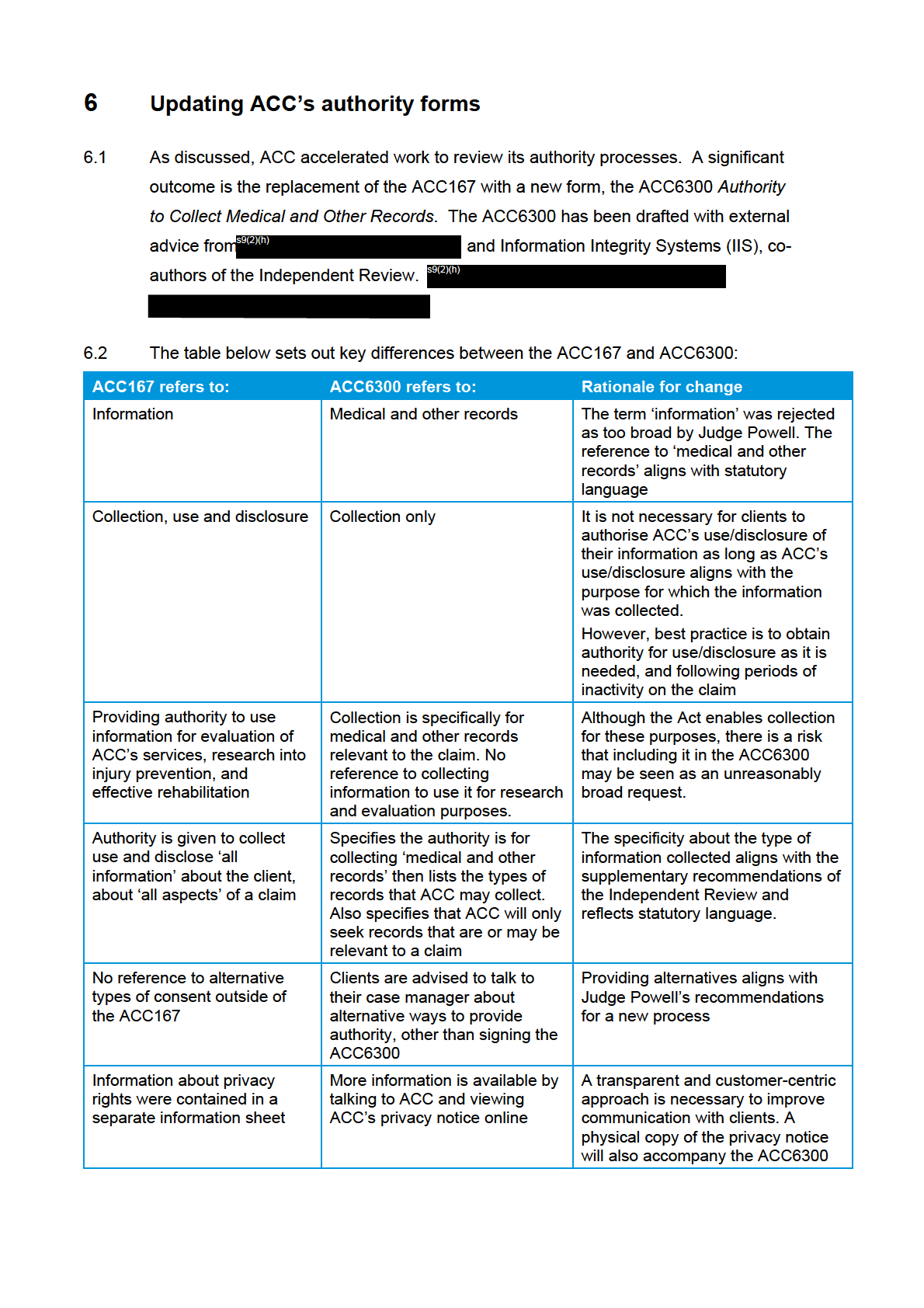
Consultation with ARG
6.3
Supplementary sections in the Independent Review mentioned that the ACC167 was
an area of concern with some stakeholders. In particular, stakeholders felt that ACC
was collecting more medical information than was needed to assess the specific
claim and that such information had been used as grounds for denying
compensation. It was this type of complaint that ultimately led to Judge Powell’s
findings.
6.4
A further complaint was that stakeholders felt they had not been listened to when
they attempted to discuss the ACC167. With this history in mind, ACC undertook to
seek feedback from ARG in the development of the ACC6300.
6.5
Following email consultation, the members of ARG expressed a desire to have a
group discussion about the ACC6300, to express their concerns and provide
feedback collectively.
6.6
An ACC-ARG meeting is scheduled for 22 May 2014 with the key goal to reach
agreement in principle to launch the ACC6300. You will be updated on the outcome
of this discussion at the May Board meeting.
Implementation and transition to the ACC6300
6.7
Launch of the ACC6300 will be accompanied by training on the form’s use and
relevant new processes. Trainer packs with presentations, discussion sheets and
frequently asked questions have been prepared and the online policy manual has
been updated.
6.8
In the transition period, ACC will not replace all of the ACC167 forms on existing
files. However, clients will be asked to sign an ACC6300 form:
•
if they raise concerns about a previous consent they provided
•
if ACC seeks further information on a file, and the client expresses a discomfort
with their existing consent after questioning by staff.
6.9
New processes will allow clients to modify the consent they provide to ACC, as long
as this will enable staff to appropriately manage the claim. Staff are being instructed
to accommodate this request by:
•
discussing with the client why ACC needs medical and other records
•
allowing the client to outline their concerns about ACC collecting these records
•
noting the client’s specific consent to ensure a consistent approach in future.
Revision of other forms
6.10
The ACC45 is being considered for revision; not only of its wording, but whether
specific client authority to collect information is actually needed at lodgement.
6.11
s9(2)(h)
Authorisation is
only required if additional information is needed from third parties. In practice, this
means that the Health Provider would only need to obtain the client’s authority to
provide initial claim lodgement information to ACC, and lodge the claim on the
client’s behalf. s9(2)(h)
6.12
An identified risk with amending the ACC45 is its widespread use as a claim
lodgement form in both printed and electronic form. Complex logistical and technical
considerations mean that implementing a new ACC45 with related processes could
take several months to complete.
6.13
In addition to the ACC45, there are 15 other forms that seek client consent to collect
information, which will need to be aligned with any changes as a result of the
ongoing review of ACC’s authority processes.
Consultation with providers
6.14
As mentioned, the ACC45 has widespread manual and electronic use around New
Zealand. Specific consideration will be given to the impact of amendments to ACC’s
authority processes on treatment providers, especially GPs at the initial claims
lodgement stage.
External communications
6.15
ACC provided a brief background about the ACC167 issue for customers and
providers on the ACC website. An 0800 helpline was launched on 15 April 2014 to
assist callers who have concerns and queries about providing authority. As at
20 May 2014, the 0800 helpline had received 119 calls (68% of these were received
in the first 10 days of operation).
6.16
Targeted messaging is being prepared for health provider groups, with the launch to
coincide with final implementation of the ACC6300. This messaging will take into
account any changes to the ACC45 and other forms of which health providers will
need to be aware.
7
Pre-employment checks
7.1
Employers request information from ACC about prospective employees for the
purpose of making recruitment decisions.
7.2
ACC has a process to ensure full compliance with legislation and ensure clients are
aware of the types of information being released to third parties who request claim
history information. This process is necessary to accommodate the growing number
of requests for such information: approximately 36,000 in the financial year to date.
7.3
ACC considers these requests under the Official Information Act 1982 (OIA). ACC is
required to respond to these requests, but will withhold information from release
where section 9(2)(a) of the OIA applies.
4 Types of information withheld by default
include:
•
mental injury as a consequence of physical injury claims
• declined
claims
•
treatment injury claims
•
claims occurring more than ten years ago
•
sensitive claims
•
claims regarding dependants of accidental death claims
•
self-harm claims.
7.4
ACC can release claim history information relating to the above claim types, but only
with express authorisation from the client concerned. In this case, as the information
is particularly sensitive and private, it is policy to only give it to the client concerned.
It is the client’s choice whether they pass this on to the prospective employer or
recruitment agency.
7.5
ACC has a standard form that prospective employers and recruitment agencies can
use to request client claim history information. It expressly states the type of
information that will be released, and that the above seven claim types will not be
4 Section 9(2)(a) enables information to be withheld where it is necessary to protect the privacy of natural persons.
disclosed unless expressly authorised by the client. Clients sign this form giving
consent for ACC to release the information to their employers.
7.6
Once express authorisation is obtained from the client, ACC releases limited claim
information, including:
• claim
number
•
cover status (will say Accept because declined claims are not disclosed by
default)
•
date of accident
•
injury description (eg sprain of shoulder/upper arm).
7.7
Both the requestor and client receive a copy of the above information. Previously the
information was sent to the client to forward to the prospective employer. However,
this caused operational issues, including delays, and the practice was stopped.
7.8
The seven claim types listed in paragraph
7.3 above are not disclosed to a requestor
unless the client expressly authorises it. In this case, ACC will always provide the
information to the client directly.
7.9
If the client does not authorise the release of their claims history information, it will
not be released to the requestor.
7.10
s9(2)(f)(iv)
s9(2)(a)
Sid
Miller
s9(2)(a)
General Manager, Claims Management
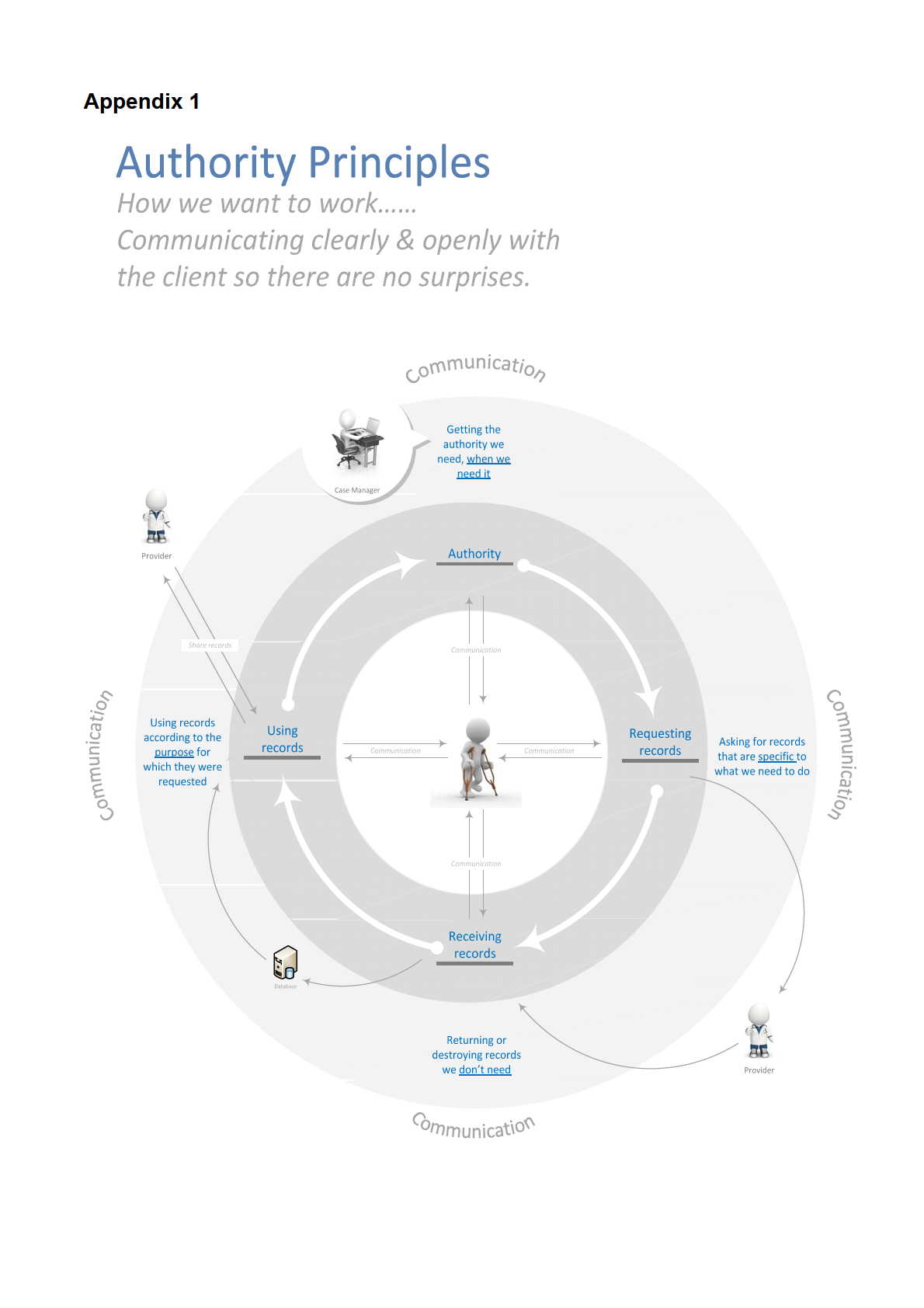
Remaining pages withheld s9(2)(h)
Remaining pages withheld s9(2)(h)
Remaining pages withheld s9(2)(h)
Remaining pages withheld s9(2)(h)
Remaining pages withheld s9(2)(h)
Remaining pages withheld s9(2)(h)
Remaining pages withheld s9(2)(h)
Remaining pages withheld s9(2)(h)
Remaining pages withheld s9(2)(h)
Remaining pages withheld s9(2)(h)
Remaining pages withheld s9(2)(h)
Remaining pages withheld s9(2)(h)
Remaining pages withheld s9(2)(h)
Remaining pages withheld s9(2)(h)
Remaining pages withheld s9(2)(h)
Remaining pages withheld s9(2)(h)
Remaining pages withheld s9(2)(h)
Remaining pages withheld s9(2)(h)
Remaining pages withheld s9(2)(h)
Remaining pages withheld s9(2)(h)
Remaining pages withheld s9(2)(h)

3.3 – Agree resolution to
issues that can be addressed
today
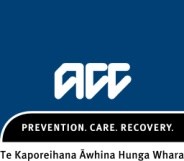 Agree resolution to issues that can be addressed today
Issue
F/P
Agreed resolution
1 Alternative ways of providing authority:
Agree resolution to issues that can be addressed today
Issue
F/P
Agreed resolution
1 Alternative ways of providing authority: The
Form
Important to keep option for full consent so the
form says to contact ACC if you want to discuss
form is workable for the majority of claimants
alternative ways of providing authority. This is
placing an unnecessary burden on the client to
Add one or two sentences that let people know
raise this question with ACC and doesn’t give
they can choose a different type of consent, with
clients enough detail to make a decision whether
a second sentence explaining what “case by
to sign the form or not. The form should name and
case” means
describe the alternatives (e.g. case by case) and
make it easy for clients to select which method
The choice has to be explicit and well explained
they are using (e.g. check boxes for “blanket
to the client
consent” and “case by case consent” or putting
“for example on a case by case basis” on the form)
Need to make it clear that people don’t have to
sign this form because they have a choice of
other options
It’s not enough to have information about
options on the website
2
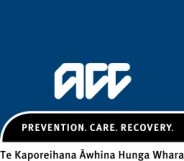 Agree resolution to issues that can be addressed today
Issue
F/P
Agreed resolution
2 Injury description:
Agree resolution to issues that can be addressed today
Issue
F/P
Agreed resolution
2 Injury description: The Claim Number is not
Form
The form may be sent to people who aren’t
sufficient for clients to know which injury(s) this
clinical or may not have the right to know what
consent relates to. Therefore the form should
the injury is (in some circumstances)
include a space for the injury description to be put
Diagnoses can change throughout the life of the
claim. If this happens, does it mean the authority
is now not valid?
Putting date of accident on the form would
enable the client to relate the consent to the
right claim
Date of accident could be a “bridging solution”
until issues around read codes etc. Are resolved
at which time the description could be put on the
form
ACC needs to examine feasibility of this because
they need to understand the risks. ACC will
explore any other solutions to the problem and
come back with a recommendation based on
what is feasible and what isn’t at this point in
time
3
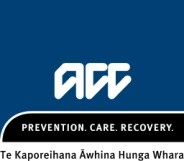 Agree resolution to issues that can be addressed today
Issue
F/P
Agreed resolution
3 Duration of consent:
Agree resolution to issues that can be addressed today
Issue
F/P
Agreed resolution
3 Duration of consent: The form should allow the
Form
Agree with principle, but want to limit the
client to specify how long they give ACC consent
number of variants that could result from the
for. The client should be able to specify whether
form so it remains practical, therefore would be
the consent is for a number of months or for the
keen to fix the duration to one fixed time
life of the claim
The choice of timeframe should be offered to
people who are going through the alternative
consent process
ACC intends to “front-foot” the conversation
about the clients comfort with the previously
signed consent through the life of the claim (e.g.
Every 12 months)
Look at adding a sentence to the 6300 clarifying
the consent is valid for the life of the claim
4
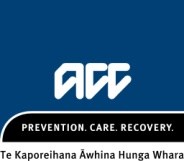 Agree resolution to issues that can be addressed today
Issue
F/P
Agreed resolution
4 List of types of information:
Agree resolution to issues that can be addressed today
Issue
F/P
Agreed resolution
4 List of types of information: The form currently
Form
Remove “could”
lists a number of pieces of information ACC can use
this consent to collect, but described these as
“These records
could include:”. This doesn’t give
any certainty to clients as to what they are
consenting to and leaves the door open for abuse.
It should say “These records include”
5
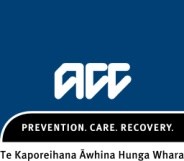 Agree resolution to issues that can be addressed today
Issue
F/P
Agreed resolution
5 Information requests:
Agree resolution to issues that can be addressed today
Issue
F/P
Agreed resolution
5 Information requests: When ACC requests
Process
The “requesting records” principle requires ACC
information from medical professionals they seem
to be very specific about what is being requested
to submit broad requests – e.g. “All information
and why. Some letters have been changed
relevant to the client’s knee injury”. These requests
already. ACC is aware of this and will ensure that
should be more specific so they are only asking for
all the letters ACC uses aligns with this principle.
information relevant to what they need to assess
the client’s injury
6
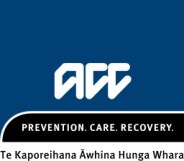 Agree resolution to issues that can be addressed today
Issue
F/P
Agreed resolution
6 Unrequested information:
Agree resolution to issues that can be addressed today
Issue
F/P
Agreed resolution
6 Unrequested information: When ACC receives
Process
Addressed by ACC’s principle around receiving
more information than they asked for, they are
information. Part of the training that will be
able to browse and store the information,
rolled out to reinforce this principle.
breaching a client’s privacy – especially with
respect to sensitive medical topics. Unrequested
information should be destroyed or returned
immediately
7
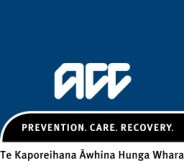 Agree resolution to issues that can be addressed today
Issue
F/P
Agreed resolution
7 ACC45 & other forms
Agree resolution to issues that can be addressed today
Issue
F/P
Agreed resolution
7 ACC45 & other forms The ACC45 has a consent
Process
Agree. ACC is looking at how the new form fits
on it which is potentially a duplicate of this
into the broader picture to make sure for
consent. The ACC45 & other forms needs to be
example the new form isn’t decoupled from the
consistent with the new form
ACC45.
8
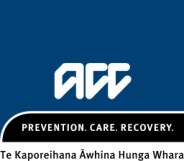 Agree resolution to issues that can be addressed today
Issue
F/P
Agreed resolution
8 Who we collect information from
Agree resolution to issues that can be addressed today
Issue
F/P
Agreed resolution
8 Who we collect information from. The form
Form
ACC agrees in principle but needs to look at the
should specify that information such as tax records
implications
will be requested from IRD and WINZ even though
ACC doesn’t technically need authority to do this.
Update form to include WINZ and IRD / tax
This will ensure the client is more fully informed.
records in the listed items so that the form is for
the complete authority ACC requires & client is
fully informed
9
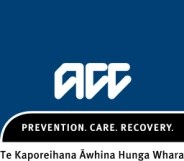 Agree resolution to issues that can be addressed today
Issue
F/P
Agreed resolution
9 “We can let you know about the types of
Agree resolution to issues that can be addressed today
Issue
F/P
Agreed resolution
9 “We can let you know about the types of
Form &
The principles around communication intend for
records we need to collect” – The form should say
Process
ACC to have conversations with clients about
that we
will let you know and this should be
what is being requested and why.
reinforced in the process so that clients are told in
advance of requests being sent out
Changing the form to “will” ensures ACC is having
the conversations the principles intends them to
10
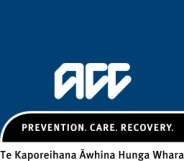 Agree resolution to issues that can be addressed today
Issue
F/P
Agreed resolution
10 Section 5.
Agree resolution to issues that can be addressed today
Issue
F/P
Agreed resolution
10 Section 5. The section on “How we will use your
Form
Move Section 5 above the signature box.
medical records” is too far down the page below
the signature. The relevant pieces of this section
should be higher up the page so clients can be fully
informed before signing
11
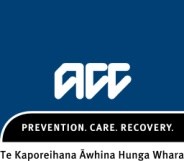 Agree resolution to issues that can be addressed today
Issue
F/P
Agreed resolution
11 “the other purposes authorised in the Accident
Agree resolution to issues that can be addressed today
Issue
F/P
Agreed resolution
11 “the other purposes authorised in the Accident
Form
Take from “How we’ll use your information”
Compensation Act 2001” – The form shouldn’t be
down to the second bullet point in Section 5 out
used to get permission to collect information for
of the form.
other purposes. Clients think they are signing this
form to help them with their claim, but this
If ACC wants to use information for other
sentence allows ACC to use information for
purposes, gain consent separately because
broader purposes which clients won’t necessarily
putting it on here doesn’t segment between the
understand the implications of. Specific consent to
client’s journey through the claim and broader
use client information for this purpose should be
scheme management
obtained explicitly
12
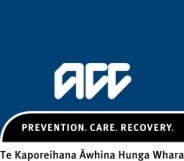 Agree resolution to issues that can be addressed today
Issue
F/P
Agreed resolution
12 Security of information during transport
Agree resolution to issues that can be addressed today
Issue
F/P
Agreed resolution
12 Security of information during transport –
Process
s9(2)(f)(iv)
Information transported from the doctor to ACC
needs to be secure and should not be done
digitally unless it is encrypted
13
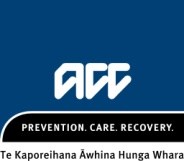 Agree resolution to issues that can be addressed today
Issue
F/P
Agreed resolution
13 Requesting information from employer –
Agree resolution to issues that can be addressed today
Issue
F/P
Agreed resolution
13 Requesting information from employer – The
Process
This is the current practice. ACC can share the
employer shouldn’t automatically be told the
current practice with ARG.
nature of the injury unless it is work related
14
Document Outline























